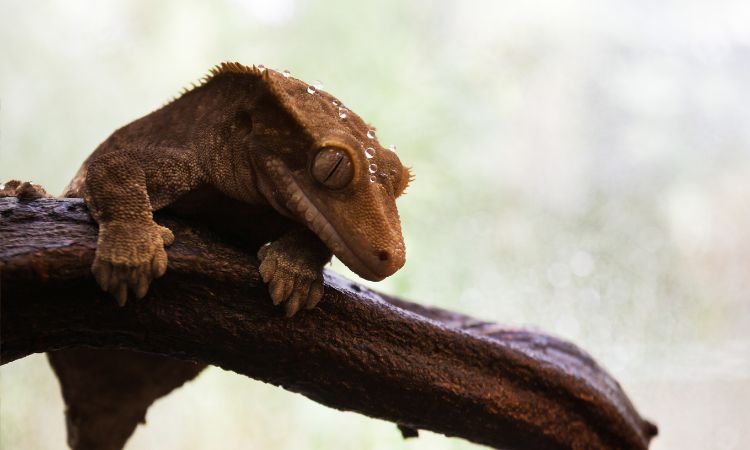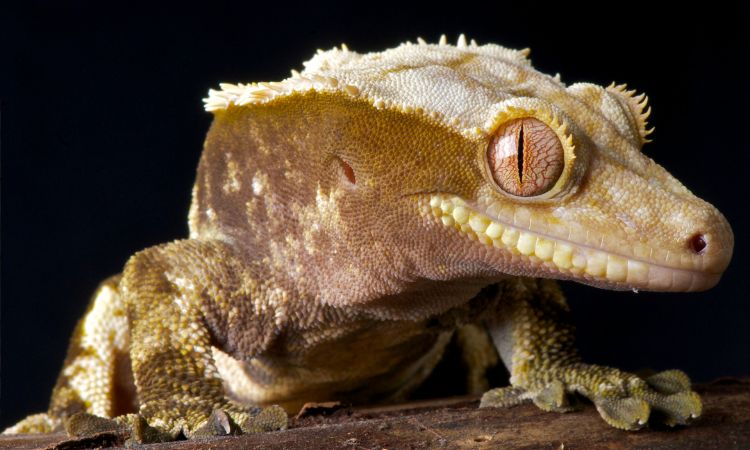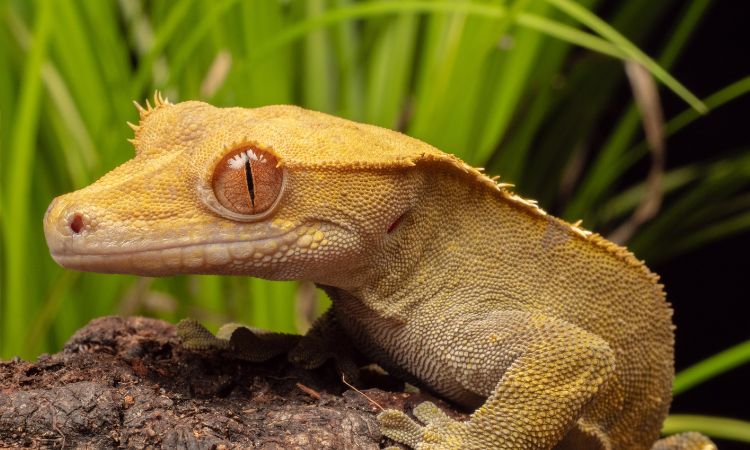When caring for a pet crested gecko, it’s important to be able to recognize signs of illness. Unfortunately, pets can sometimes become seriously ill or injured without warning and die suddenly. Knowing what signs to look for in your gecko can help you know when to seek medical attention and give your crested gecko the best chance at survival.
As a first time gecko owner, you may be wondering how to tell if your crested gecko is dying. While it’s certainly not something you want to think about, it’s important to be prepared in case your scaly friend isn’t feeling well. Here are some signs that your crested gecko may be dying and what you can do to help them.
Crested geckos can live for up to 20 years, but they may start to show signs of aging after 10 years
Like with all living things, geckos become a bit more frail as they get older – their movements may become slower and they may even have difficulty catching food.
However, geckos usually don’t show any so-called “old age” symptoms until their later years, making them a great pet for those who don’t want to think about the possibility of it dying too soon.

Crested geckos are amazing creatures that can live up to an impressive 20 years, although their age starts to show after about 10.
Common signs that a crested gecko is dying include weight loss, lethargy, and lack of appetite
Spotting that a gecko is dying can be a heartbreaking experience, as these animals make wonderful pets. If someone notices their gecko losing weight, becoming lethargic, and having a loss of appetite, it is important to identify and treat the underlying cause quickly.
Not only does this condition lower the quality of life for the gecko but can also lead to its eventual death if not treated properly.
It’s essential for gecko owners to pay close attention to their pet’s behavior so they can catch any changes early on. If a gecko seems off in any way, it never hurts to get an expert opinion from an experienced vet or biologist.

If your crested gecko has any of these symptoms, it’s important to take them to the vet right away
Having a gecko as a pet can be an incredibly rewarding experience, as they are intelligent creatures with plenty of personality. But if your gecko starts acting lethargic or stops eating normally, it may be time to see the vet.
Vomiting, weight loss or discoloration of the skin can also be signs of illness that should not be ignored.
These symptoms could indicate that your gecko is suffering from a serious disease which, if left untreated, could lead to its early death. To keep your gecko happy and healthy for as long as possible, it is essential to take any signs of decline seriously and contact your veterinarian right away for help.
There is no one definitive answer for how to care for a dying crested gecko, but some general tips include providing a warm environment and plenty of water
Caring for a dying gecko can be a difficult and stressful experience. Unfortunately, there is no one definitive answer for how to go about doing so; however, some general tips may prove helpful in ensuring that your gecko has the best possible quality of life during its final days.
Providing a warm and humid environment is very important in restoring your gecko’s health to some degree, as is keeping fresh water nearby at all times. Additionally, make sure to keep an eye on its diet and supplement with vitamins or other appropriate materials as necessary.
Taking these steps will certainly not solve the problem completely, but it can help to ease the stress of caring for a gecko in decline.

Every Gecko Is Different
It’s important to remember that every crested gecko is different, so what works for one may not work for another
When it comes to taking care of crested geckos, it is important to remember that each gecko is unique and has different needs. What may work for one gecko may do little for another gecko.
For example, a gecko may prefer a certain substrate in their enclosure, but if the temperature and humidity are not maintained correctly then the gecko can die quickly. It’s worth remembering that just because something might have worked for another gecko does not guarantee it will work for your gecko.
Paying attention to details such as their diet, environment, and behavior will help you make sure your gecko is both happy and healthy.
Crested geckos are a wonderful pet to have, but like all living creatures, they eventually die. While it’s hard to see our beloved pets in their final days, there are some things we can do to make them more comfortable. Providing a warm environment and plenty of water are generally recommended, but every crested gecko is different so be sure to ask your vet for specific care instructions.
It’s also important to remember that the grieving process is just as real for us as it is for them, so don’t hesitate to reach out to friends or family members for support during this tough time.
Wrapping It Up
In conclusion, it is important to identify any signs of distress in your crested gecko as soon as possible. Keeping up with their overall health and consulting a veterinarian when needed can help ensure they stay healthy and live a full life. If you have any questions or concerns it is best to talk to an expert instead of relying on online sources. Proper temperature, humidity, nutrition, water, and enclosure are all key components in keeping your crested gecko healthy.
Related posts:

Hi – I’m Erika, the lead gecko enthusiast here at Geckopedia! I write articles about pet geckos, including what to feed your leopard gecko and how to help your pet gecko live a long, happy life! I graduated with advanced degrees from UC-Berkeley, the University of Southern California (USC) and Indiana University-Bloomington, where I studied Biology and Animal Science. I use my experience to help others learn about gecko care, and I am an advocate for all topics gecko related!
